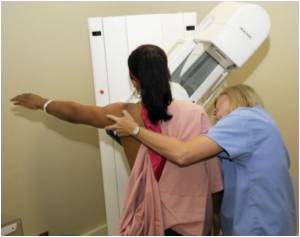Eating a high-fat diet during puberty is associated with a greater risk of breast cancer later in life, according to a preliminary research.

Physiology professor Sandra Haslam, director of the center, and Richard Schwartz, microbiology professor and associate dean in the College of Natural Science, are now expanding that research.
"The pubertal time period is crucial, as this is when the basic framework is created for mammary gland development. What we are seeing from preliminary research in animals is that a high-fat diet during puberty can lead to the production of inflammatory products in the mammary glands of adults, which can promote cancer growth," Haslam said.
The work is based on the team's previous research that found the hormone progesterone activates genes that trigger inflammation in the mammary gland; that inflammation may be a key factor in increasing the risk of breast cancer.
The researchers discovered that a high-fat diet during puberty produced many of the same effects seen as part of their progesterone research.
Schwartz said: "Understanding what genes were turned on by progesterone led us to look at some of the same suspects with high-fat diets. It appears both processes may lead to inflammation in the mammary glands."
Advertisement
To test their findings, Haslam and Schwartz will lead a team analyzing two different mouse models of breast cancer and the effects of high-fat diets during puberty. They also will test several anti-inflammation interventions designed to overcome the negative effects of a high-fat diet on inflammation.
Advertisement














